Linda Rodriguez's Blog, page 17
September 15, 2012
Of Books, Politics, and Privilege
The other day I had a conversation with someone. This conversation still bothers me. Probably because it’s a discussion whose main points I’ve had to deal with many times before with other people. This particular person was a very privileged white man who has an excellent record of trying to value and implement diversity. Let me state that up front. This guy is not some ignorant, insensitive racist. He’s a guy who has the wherewithal to live a happy life of privilege without ever having to concern himself with poor people or people of color. Yet he truly tries to understand when he wouldn’t have to and when it’s made his own life more difficult. I can appreciate that.
Still, he doesn’t understand because ultimately he is not yet able to stand outside his privilege of white skin, male gender, and inherited wealth. I say, “not yet,” because I refuse to give up hope for him and others I’ve encountered like him, who have genuinely good intentions but can’t get past the blinders of privilege. Earlier conversations with such people have focused around the difficult lives of women living in poverty, the automatic racism encountered over and over by people of color that can leave them justifiably hypersensitive, and similar topics. This conversation centered on books.
This person condemned a wide variety of fiction and poetry by writers of color, in particular Latinas and Latinos, as “just political.” Good writing, according to him, is not “political posturing.” I looked at the list of books we were discussing, which ranged from Rudolfo Anaya and Manuel Muñoz to Luis Alberto Urrea and Helena Maria Viramontes, and tried to explain that most of these writers weren’t trying to write political novels or poetry as much as they were simply trying to be true to the lived experience of their lives and the lives of their families and ancestors. He didn’t buy it.
You see, in his experience, everyone is deferential and respectful to him (as he is routinely respectful to everyone he meets, no matter their socioeconomic status). He has no experience of being deliberately humiliated or seeing his parents deliberately humiliated because of the color of their skin, their accent, their Hispanic last names, and/or their poverty. He has no experience of deliberate, offhanded cruelty directed at him or his family or neighbors for no reason other than because the inflictor can get away with it. He has no experience with living in grinding poverty, seeing his parents (and possibly himself) forced into dangerous, unsafe, and unfair working conditions for the tiniest possible wages.
In his world, such things are unreal. Therefore, they must be made up or vastly exaggerated for political purposes. To him, therefore, any writer who simply writes of her childhood misery working in the fields as a migrant laborer as Helena Maria Viramontes does or of the poverty and casual, racist cruelty encountered as the child of an immigrant as Luis J. Rodriguez does must be dishonestly fabricating in order to inflame the reader’s emotions for political purposes. Writers speak the truth about their lives and the lives of many in their communities, and because the reality they describe is so unacceptable, they must be making it all up for radical political purposes.
I know, unfortunately, that this is a common stance, even among some well-meaning people. I live east of Troost in Kansas City, Missouri, which is automatically considered the bad part of town because it is still populated by poor to working-class people of color, mostly African American. Once when talking with a woman from the suburbs who had done great work on diversity in Kansas City, she mentioned that people in the suburbs were tired of paying for the city to send out plumbers to fix the plumbing of people in my neighborhood for free. Stunned, I told her that never happened, that people where I live have to pay for plumbers, just as suburban residents do. Equally shocked, she asked, “But what do they do if they can’t afford a plumber?” “Like anyone else, they shut off the water to that sink or toilet or whatever until they can afford one,” I replied.
Through the years, I’ve come to realize that many well-to-do white people, even well-educated ones, believe myths like this about poor people, especially poor people of color. The Black unmarried welfare-queen myth—when statistics have shown for many years that the vast majority of women on welfare are white and married with white husbands who’ve deserted their families. The myth of the wealthy, lazy Indian, who lives in squalor because he likes it—when Indians living on the reservations tend to fall further below the poverty level than any other group in America and have less access to jobs, education, health care, even electricity and running water than any other group in America at the same time we’ve learned through the American courts that the BIA has “lost” (read: defrauded the tribes) of multiple billions of dollars that were rightfully theirs.
So perhaps it’s not surprising that the person whose conversation with me began this post believes that poor people of color writing about their lives and history must be inventing out of whole cloth for inflammatory political purposes. I’m not angry with him. I’m sad for him—and others like him. The only way to get past the blinders of privilege is to take a journey way out of their comfort zones, to walk into the world of the disenfranchised (of whom they are afraid). Or they could read the works of the many gifted Latina/o writers, African American writers, Indigenous writers, Asian American writers, and poor white writers and discover the world they and their people live in deep underneath that bright surface of the world of American privilege.
Published on September 15, 2012 11:17
September 8, 2012
First Steps toward Publishing Your Novel

I have been receiving more and more emails from people who’ve read Every Last Secret, or just read of it, in which they ask me how to get their own novels published. Usually, they know just about nothing of the business of publishing, which surprises me. If you took a year or so to write a book that you hoped to publish and sell, wouldn’t you owe it to yourself to research and learn something about the business of publishing that you hope to join?
I always try to answer with a detailed listing of things they can do to educate themselves about the business and to begin to connect with the professional literary community. I have a feeling that I have friends and followers out there in the same situation who might be reluctant to ask, so I’ve decided to write this blog post. Here’s my resource guide to publishing a novel. It won’t get you published, but it will give you a good foundation in the business of publishing/being a professional novelist and get you started in the right direction.

Pitching a novel to a major publisher today can be very difficult without an agent. Most of the New York trade publishers won’t look at novels unless they’re represented by an agent. Smaller specialized presses, literary presses, and university presses will take unagented queries during their open submissions period, if they have one. Often they can be the best bet for a first novel that’s not necessarily a commercial novel. Poets & Writershas a database of small, literary, and university presses. http://www.pw.org/small_presses?perpage=* Many of these won’t do novels, so you’ll have to sort through them. Here’s a list of 16 small presses that do novels. http://fictionwriting.about.com/od/thebusinessofwriting/tp/smallPresses.htm You can also do an internet search for small presses that specialize in your particular genre of novel, if you write in one of the genres.
For agents, I would suggest that you check the website of the Association of Author’s Representatives. http://aaronline.org/ This is the professional association of reputable agents. It’s very easy to get involved with folks who call themselves agents and are really running scams to part authors from their money. Members of AAR have sworn not to do this stuff and are kicked out if they do, so you can trust them. Another good site to educate yourself and protect yourself from scammers is Writer Beware. http://www.sfwa.org/for-authors/writer-beware/ This is a site provided by the SFWA as a service for all authors, science fiction or not.
But the first thing you want to do is to get current copies of Poets & Writers, Writer’s Digest, and The Writer magazines. (The Writer has just been purchased by another company. I don’t know how that will affect what they offer or their publication schedule, but for over a century, they were a helpful magazine for writers.) These magazines often talk about which publishers are looking for what kinds of books at the moment. P&Wfocuses more on the academic and literary writer, while WD focuses more on the commercial or freelance writer. If your library has them, also read back issues of P&W, The Writer, and WD. You’ll learn a lot about the business that way.
Look for professional authors groups to join. There are groups for children’s writers, mystery writers, romance writers, sf/fantasy writers, etc. These groups are usually tremendously helpful in learning the publishing business and making useful contacts. If there is a chapter of a professional writer’s organization near you and it’s not your kind of writing, it can still be useful to you in learning the business. I once belonged to the local chapter of RWA, Romance Writers of America, though I didn’t write romance. I learned about agents, what editors want, what is and is not acceptable behavior in the publishing world, what are and are not good contracts, and tons of other things that became useful to me. Now, we have a chapter of Sisters in Crime here, and I’m active in it, but that time in RWA laid a very good foundation for me. The same goes for SFWA or any of the others. The purposes of these organizations are to help their members with the business of publishing and being a professional—and that’s very similar across the boards.
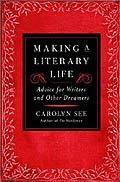
A book I always recommend to students and aspiring writers is Carolyn See’s Making a Literary Life. I’ve written about this book on the blog, Writers Who Kill. http://writerswhokill.blogspot.com/2012/05/visualizing-success-as-writer.htmlIt’s the best book for looking at how to be a professional writer and work on getting published, how to get established within the literary community, how to make a career as a writer without living in NYC, and much else.
If I were you, friend with a book manuscript under your arm, I’d start with these resources. I’d also go to every writer’s appearance/reading/event that occurs in your town if it’s a small one or a good selection if you live in a big city with an active literary community. Buy a book, if you can. Introduce yourself to the writer. Follow up with emails or mailed notes talking about what you liked about their reading or book— not asking for help with your own. Friend writers on Facebook, and follow them on Twitter. Don’t spam them about your own book. What you’re doing is building relationships within the community of writers. These are the folks who can answer questions for you or later (if you’ve built a good, real relationship) give blurbs that will help your book sell. Basically, my advice is to educate yourself about publishing and become a contributing member of the community. Getting a novel published is a long, hard haul, so arm yourself with information and allies.
The best single piece of advice I could give, however, is this—make sure you write a good novel. Get professional feedback and revise, revise, revise until it shines before you ever try to send it out. I suspect that a certain number of folks who are looking for a publisher for their novel have never had anyone professional look at it and haven’t done much with revision. Writing is an art and a profession. Learn about publishing, the business, while you learn about writing, the art and craft. Editors and agents have long memories. Don’t stick out in theirs from sending an amateurish manuscript out. Make sure that what you send is the very best it can be submitted in the most knowledgeable and professional way you can.
Best of luck!
Published on September 08, 2012 12:04
September 3, 2012
Literary Mystery Novelists--Hank Phillippi Ryan
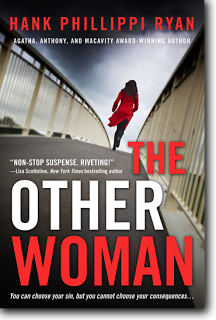 My new favorite book is The Other Woman by Hank Phillippi Ryan. It’s a tight, suspenseful read with well-wrought characters, a complex plot, and writing that brings the world of Boston politics alive. It’s a book that kept me turning the pages to find out what happened next and then had me opening it from the beginning again because I didn’t want to leave her well-crafted people and world.
My new favorite book is The Other Woman by Hank Phillippi Ryan. It’s a tight, suspenseful read with well-wrought characters, a complex plot, and writing that brings the world of Boston politics alive. It’s a book that kept me turning the pages to find out what happened next and then had me opening it from the beginning again because I didn’t want to leave her well-crafted people and world.The Other Woman, comes out in hardcover September 4 from Forge. A starred review from Library Journal says “a dizzying labyrinth of twists, turns, and surprises. Readers who crave mystery and political intrigue will be mesmerized by this first installment of her new series.” It also received a starred review from Booklist.
Jane Ryland was a rising star in television news—until she refused to reveal a source and lost everything. Now a disgraced newspaper reporter, Jane isn’t content to work on her assigned puff pieces, and finds herself tracking down a candidate’s secret mistress just days before a pivotal Senate election.
Detective Jake Brogan is investigating a possible serial killer. Twice, bodies of unidentified women have been found by a bridge, and Jake is plagued by a media swarm beginning to buzz about a “bridge killer” hurting the young women of Boston.
As the body count rises and election day looms, it becomes clear to Jane and Jake that their investigations are connected…and that they may be facing a ruthless killer who will stop at nothing to silence a sandal.
With its dirty politics, dirty tricks, and a barrage of final twists, The Other Woman is the first in an explosive new series. Seduction, betrayal and murder—it’ll take a lot more than votes to win this election!
Here’s a link to buy The Other Woman.
And here’s THE OTHER WOMAN video!
http://www.youtube.com/watch?v=RdH02wV_O3M
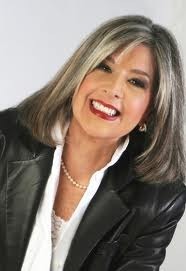 HANK PHILLIPPI RYANHank Phillippi Ryan is the on-the-air investigative reporter for Boston’s NBC affiliate. Her work has resulted in new laws, people sent to prison, homes removed from foreclosure, and millions of dollars in restitution. Along with her 28 EMMYs, Hank’s won dozens of other journalism honors. She’s been a radio reporter, a political campaign staffer, a legislative aide in the United States Senate and an editorial assistant at Rolling Stone Magazine working with Hunter S. Thompson.Her first mystery, the best-selling PRIME TIME, won the Agatha for Best First Novel. FACE TIME was a BookSense Notable Book, and AIR TIME and DRIVE TIME were nominated for the AGATHA and ANTHONY Awards. Hank’s short story “On the House” won the AGATHA, ANTHONY and MACAVITY.
HANK PHILLIPPI RYANHank Phillippi Ryan is the on-the-air investigative reporter for Boston’s NBC affiliate. Her work has resulted in new laws, people sent to prison, homes removed from foreclosure, and millions of dollars in restitution. Along with her 28 EMMYs, Hank’s won dozens of other journalism honors. She’s been a radio reporter, a political campaign staffer, a legislative aide in the United States Senate and an editorial assistant at Rolling Stone Magazine working with Hunter S. Thompson.Her first mystery, the best-selling PRIME TIME, won the Agatha for Best First Novel. FACE TIME was a BookSense Notable Book, and AIR TIME and DRIVE TIME were nominated for the AGATHA and ANTHONY Awards. Hank’s short story “On the House” won the AGATHA, ANTHONY and MACAVITY.How would you describe The Other Woman to someone who has not read any of your previous novels?
I love that Julia Spencer-Fleming called it The Candidate meets Basic Instinct. I’ve called it The Good Wife meets Law & Order. A Booklist starred review (!) calls it “The perfect thriller for the election season.” It’s a fast-paced page-turner about a reporter on the trail of a candidate’s secret mistress. Who is the other woman? And if a candidate is having an affair—should the reporter make that public? And its the first in a new series, so readers are starting at the beginning. Fans of Lisa Scottoline and Harlan Coben will love it, I hope!
Who were your literary influences growing up? Are there any authors (living or dead) that you would name as influences?
Growing up? After I finished all those little blue biographies (Dorothea Dix--Girl of the Streets, Mark Twain--Boy of the Mississippi) I read all the horse books, Black Beauty and King of the Wind and Misty of Chincoteague. Then the magic books, E. Nesbit and Edward Eager and Jane Langton. Of course, Nancy Drew and Donna Parker and Vicki Barr, girl stewardess. (Remember?) All the Arthur Conan Doyle Sherlock Holmes stories. When our library had a who-can-read-the-most-books contest, you know me. I was in it to win it. Then one day I sneaked MARJORIE MORNINGSTAR from my parent’s shelves, and then TEN NORTH FREDERICK, and then—FAILSAFE. Whoa. Thrillers! Then ALAS BABYLON. ON THE BEACH. SEVEN DAYS IN MAY. And my life was never the same.
Influences now? I’m a huge fan of Tom Wolfe, from The Right Stuff to Bonfire of the Vanities. I adore Stephen King, and consider The Stand as a life-changing book for me. Edith Wharton’s Custom of the Country and House of Mirth. Dennis Lehane. Lisa Scottoline. Tess Gerritsen. Harlan Coben.
What inspired you to write your first novel? Do you think your background as an Emmy-Award-winning investigative reporter drew you into the mystery field rather than another genre?
Oh, I’ve always wanted to write mysteries, from my first Sherlock Holmes! But I just never had a good idea for a plot. (Problem, huh?) But when I finally did—at age 55!—I became obsessed with writing fiction.
And I do love how similar it all is—in investigative reporting and crime fiction, you’re tracking down clues, following leads, looking for compelling characters with a wonderful and important story to tell—hoping the bad guys get what’s coming to them, and the good guys win. You’re searching for justice and to change the world a bit.
So crime fiction and investigative reporting connect in a very essential way.
Someone asked me once if I could write a romance novel without a mystery—and I asked--what would the characters DO? I guess I’m a suspense writer at heart. What's your writing process? What is a typical writing day like for you? Do you keep to a set schedule? What are your writing habits? How do you juggle writing books and your demanding television job?
There’s no typical, there really isn’t. I work 9 to 6 as a reporter every weekday, and concentrate on that. Given that--it doesn’t leave me to write my fiction. I have to be very focused and very organized. NO excuses, no procrastination. No vacations.
What projects, literary or otherwise, are occupying you at the moment?
Ah! THE OTHER WOMAN is out right now! I am crazy-busy, trying to type with crossed fingers as I hope people love it and—gasp—actually buy it. The reviews are stellar, for which I am relieved and incredibly grateful.
And I just sent book two in the Jane Ryland/Jake Brogan series to the publisher—right now, it’s called THE WRONG GIRL.
Do you belong to a critique group of other authors. Do you find it helpful? In what ways?
Nope. No groups, no partners, no nothing. I’ve written for 30 years as a reporter with editors and producers, so I’m confident I know what I’m doing on the first draft! After that, I have two professional editors read my work. That’s it, before it goes to the publisher. My editor at Forge is brilliant, so we also work on the books together. I love to do tweaks and edits, it’s so wonderful to see the book emerge!
What is your advice to aspiring writers? How important is it for a young writer to be a reader? What would you recommend they read?
Write what you love. Write what you would read! That’s so important. It’s very very difficult—and every truly successful author I’ve ever talked to about this admits to days when they despair—when they really think they stink. EVERYONE. So on a day you’re having a tough time, pat yourself on the back. You’re a writer—because every writer feels that way. Then just—go on.
What is the most surprising thing you’ve learned in your writing career? What has been the hardest part about being a writer?
Patience! Is the answer to both. Unlike day-to-day television reporting, writing is a long haul. It takes a long time to write a good book! The most important thing is to persist, get better, trust yourself, and be incredibly grateful to friends—like you, dear Linda—who are enthusiastic and supportive along the way. Nothing happens overnight. (Except sometimes…you get a good idea!)
You can connect with Hank Phillippi Ryan on Facebook, Twitter, and Jungle Red Writers at the links below.
Published on September 03, 2012 08:25
August 16, 2012
Books of Interest by Writers of Color—Ruth Behar, Stanley Banks, Xánath Caraza

Ruth Behar, An Island Called Home: Returning to Jewish Cuba (Rutgers University Press) Behar’s latest book is the beautifully illustrated story of her journey back to the island she left for the United States at age five. She seeks traces of Jewish life and spirituality in the land of Fidel Castro. What has survived? And what has been lost? Her search is accomplished and recorded with the compassion and keen observation for which Behar is famed in her groundbreaking anthropological studies, but it is the poet Behar who brings to life the people who struggle to care for the legacy of Judaism in Cuba.
Behar is probably most famous for her work in anthropology, which transformed that field of privileged observers with such revolutionary works as Translated Woman: Crossing the Border with Esperanza’s Story (Beacon Press) and The Vulnerable Observer: Anthropology That Breaks Your Heart (Beacon Press). She has edited pioneering literary anthologies of Cuban and Cuban American writers and of women anthropologists whose artistry informs their ethnography. Her own poetry, stories, and essays have been published in a wide variety of prestigious journals and anthologies. She wrote, directed, and produced an 82-minute documentary, Adio Kerida/Goodbye Dear Love: A Cuban Sephardic Journey, which has been shown to great praise in film festivals around the world. Behar has received a McArthur Foundation “genius” grant, a Guggenheim Fellowship, a Fulbright, and many other awards.
As with so many of the established writers I profile, Behar gives generously of her time and energy to help emerging writers and ethnographers. She teaches writing workshops in Tijuana, at the Macondo Writing Workshop, and even offers a workshop in creative ethnographic writing at the annual meeting of the American Anthropological Association. She is Professor of Anthropology at the University of Michigan, where she is also affiliated with programs in Women’s Studies, Latina/o Studies, Latin American and Caribbean Studies, and Jewish Studies.
Here is the link for Behar’s most recent book. As always, I encourage you to order it from the university press which published it. Small independent and university presses publish the vast majority of the books by writers of color. We need to support the presses that bring these wonderful writers to us.
 Stanley E. Banks, Blue Beat Syncopation(BkMk Press) Banks’ fourth book, Blue Beat Syncopation, collects the best of twenty-five years of his poetry. A product of an abusive home in some of the meanest streets in Kansas City, Missouri, Banks writes a number of poems about his bootlegger grandmother with a pistol in her pocket, who gave him the chance and strength to aim for something more. He writes about the number of his family members who have died of violence or are in prison and the hopelessness that infects whole communities.
Stanley E. Banks, Blue Beat Syncopation(BkMk Press) Banks’ fourth book, Blue Beat Syncopation, collects the best of twenty-five years of his poetry. A product of an abusive home in some of the meanest streets in Kansas City, Missouri, Banks writes a number of poems about his bootlegger grandmother with a pistol in her pocket, who gave him the chance and strength to aim for something more. He writes about the number of his family members who have died of violence or are in prison and the hopelessness that infects whole communities. In an interview, Banks has said, “I was born in the shit-house. You can take that and become bitter and mad and angry at the world. Or, you can take it and say, so I wasn't promised anything, I wasn't given anything, but I'm going to make something better of my life somehow and influence people in a positive way.” With his poetry full of the music of jazz and the blues and the pain of the impoverished streets, as well as with his many years of teaching and work within underserved communities, Banks has made good on that promise. Here is the link to purchase Banks' book.
 Xánath Caraza, Conjuro (Mammoth Publications) Caraza’s first book-length collection of poetry is a tri-lingual text using Spanish, English, and Nahuatl. Her poetry carries the heartbeat of the oral traditions from which she springs and the places she has visited, celebrating the word as music. Originally from Xalapa, Veracruz, Mexico, Caraza has lived in Vermont and Kansas City. She has an M.A. in Romance Languages and lectures in Foreign Languages and Literatures at the University of Missouri-Kansas City. Her chapbook Corazón Pintado: Ekphrastic Poems (2012) was published by TL Press. She won the 2003 Ediciones Nuevo Espacio international short story contest in Spanish and was a 2008 finalist for the first international John Barry Award. Caraza is an advisory member of Con Tinta and a former board member of the Latino Writers Collective.
Xánath Caraza, Conjuro (Mammoth Publications) Caraza’s first book-length collection of poetry is a tri-lingual text using Spanish, English, and Nahuatl. Her poetry carries the heartbeat of the oral traditions from which she springs and the places she has visited, celebrating the word as music. Originally from Xalapa, Veracruz, Mexico, Caraza has lived in Vermont and Kansas City. She has an M.A. in Romance Languages and lectures in Foreign Languages and Literatures at the University of Missouri-Kansas City. Her chapbook Corazón Pintado: Ekphrastic Poems (2012) was published by TL Press. She won the 2003 Ediciones Nuevo Espacio international short story contest in Spanish and was a 2008 finalist for the first international John Barry Award. Caraza is an advisory member of Con Tinta and a former board member of the Latino Writers Collective.Here is the link to buy Caraza’s book. Mammoth Publications is a Native-owned press, so please support them. If we can develop more presses owned and run by writers of color, we will see more writers of color published.
This is the first full writers of color post I've done in a while. These are very labor-intensive, and demands on my time have grown. I will still do these from time to time, but I will be offering as part of this series single book reviews or notices of awards for writers of color more often. To keep to the format with which I began this series would guarantee that I'd hardly ever post another entry in it. I still hope to get through my long list of fine writers of color, even as more are added, but I will have to do it in an easier format most of the time.
Published on August 16, 2012 18:47
August 13, 2012
Guest Blog—Debra H. Goldstein
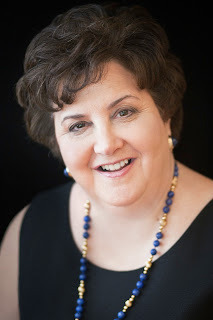 It's always a pleasure to have Her Honor Debra H. Goldstein as a guest blogger here. Debra is a judge, a mother, a community activist, and an award-winning writer. I watch her juggle all those torches and plates in awe most of the time. When she told me of yet another project, it was one I wanted all of you to know about, as well.
It's always a pleasure to have Her Honor Debra H. Goldstein as a guest blogger here. Debra is a judge, a mother, a community activist, and an award-winning writer. I watch her juggle all those torches and plates in awe most of the time. When she told me of yet another project, it was one I wanted all of you to know about, as well.THE COST OF LIBRARIES
I’ve always been a sucker for libraries. My first summer memories are of watching a librarian move my paper airplane across the country reflecting the number of books I took out and returned read. Thanks to my mother’s willingness to take me to the library, my plane moved every day! During my school years, I checked out a book in the morning to read during the day and then read a different book each night. I give a lot of credit to my library time and the guidance librarians gave me with my later achievements as a student, lawyer, judge, and writer.
Unfortunately, “It’s the economy…” “Curriculum cuts….” “AIn 2011, fifteen concerned parents, staff, and community members, led by Heather Albee-Scott, the mother of a sixth grader, decided to bring the Parkside library back.With space requiring rewiring and renovation, no money, boxes containing the presently owned 1000 books for 2000 students, and a few outdated computers, the Parkside Media Center group recognizedits goal was ambitious, but they also realized their efforts were an investment in their children and the future of their community.
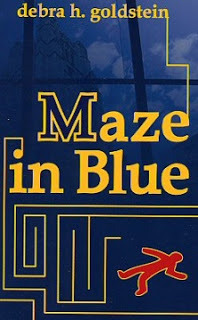 In October 2011, I agreed to do two books signings at Nicola’s Books in Ann Arbor, Michigan for Maze in Blue, my debut mystery set on the University of Michigan in the 1970’s. As part of the PR for the signings, I was asked to do a ‘local girl succeeds’ interview for the Jackson Citizen Patriot and Mlive.com. The reporter, Leanne Smith, and I agreed to meet at Parkside so we could get some pictures in the school. I hadn’t been back to Parkside in almost forty years. When I pulled up, the first thing I noticed was the empty parking lot – middle school students don’t drive. The eagle statue in front of the school also seemed smaller, but the front office, except for the dates on the papers posted on the yellow walls, was unchanged. It was a little eerie though when the assistant principal turned out to be a woman who had been in my sister’s class. The interview was one of the high points of my trip, but I left the school with a sense of loss when I learned why students were lounging in the library space.
In October 2011, I agreed to do two books signings at Nicola’s Books in Ann Arbor, Michigan for Maze in Blue, my debut mystery set on the University of Michigan in the 1970’s. As part of the PR for the signings, I was asked to do a ‘local girl succeeds’ interview for the Jackson Citizen Patriot and Mlive.com. The reporter, Leanne Smith, and I agreed to meet at Parkside so we could get some pictures in the school. I hadn’t been back to Parkside in almost forty years. When I pulled up, the first thing I noticed was the empty parking lot – middle school students don’t drive. The eagle statue in front of the school also seemed smaller, but the front office, except for the dates on the papers posted on the yellow walls, was unchanged. It was a little eerie though when the assistant principal turned out to be a woman who had been in my sister’s class. The interview was one of the high points of my trip, but I left the school with a sense of loss when I learned why students were lounging in the library space. After reading the Maze in Blue interview, Ann Holt, a member of the Parkside Media Center committee, e-mailed me the link to an article explaining what the PMC committee is trying to do. Cake sales, small grants, and the school board committing $80,000 from the $3.9 million it saved on projects from a 2009 bond issue have resulted in the raising of almost 1/5 of the money needed to fully bring the media center online, but the big fund-raising and donation-in-kind push efforts are scheduled for 2012/2013. I volunteered to help.
On October 6, 2012, almost a year to the date I was at Parkside, the Jackson District Library, Nicola’s Books, PMC and I are joining together for an author evening at Parkside that will consist of an author talk, signed copy of Maze in Blue, and hors d’oeuvres for the purchase of a $35 ticket. All proceeds from the tax-deductible ticket purchase will go directly to the Parkside Media Center Project. Provision has been made for those who can’t attend, but contribute at least $40 through this event via http://parksidemediacenterproject.com/donate/ to receive a signed copy of Maze in Blue. Other fundraisers and solicitations to alumni and people who care about librariesfor grants, computers, software, and young adult books are planned throughout the next two years.
In the meantime, according to Albee-Scott, that isn’t a reason to wait to reopen the library. This summer, students worked under the guidance of Parkside graduate and Jackson District Librarian Calvin Battles to catalog and shelve the present collection. The recently accepted 2012-2013 school budget calls for a partnership with the Jackson District Library to fund a part-time librarian position. When school resumes, the library will be waiting for students and faculty members.
The closing of the library was a step backward, but the vision of the committee to have a fully stocked and staffed media center offers opportunity for the future. Not only will it be another tool for Parkside to use in improving its proficiency; it will help provide an educated workforce for community growth. As Walter Cronkite, the news commentator stated, “Whatever the cost of our libraries, the price is cheap compared to that of an ignorant nation.” As readers and writers, the libraries need us and we need them.
Debra adds:I asked Heather where they could mail books if anyone wanted to do so. She replied:“If they want to donate books they can email us at parksidemediacenterproject@gmail.com- we are thrilled to take books!”
Judge, author, litigator, wife, step-mom, mother of twins, civic volunteer, Yankee, University of Michigan graduate, and transplanted Southerner are all words used to describe Debra H. Goldstein. She is the author of several award winning fiction and non-fiction pieces including "Legal Magic," "Malicious Mischief," "Grandma's Garden," "The Rabbi's Wife Stayed Home," "Maybe I Should Hug You," and "An Open Line." Her debut novel, Maze in Blue, a mystery set on the University of Michigan's campus in the 1970's, was published in 2011. Her website is www.DebraHGoldstein.com, and blog, "It's Not Always A Mystery," can be found at http://DebraHGoldstein.wordpress.com.
Published on August 13, 2012 19:07
August 7, 2012
SIMPLE by Kathleen George
Last year, I interviewed and profiled Kathleen George on this blog as part of my ongoing Literary Mystery Novelists series. Read it here.
Kathleen George, Simple (Minotaur Books) 333 pp. ISBN: 0312569149
http://us.macmillan.com/simple/KathleenGeorge
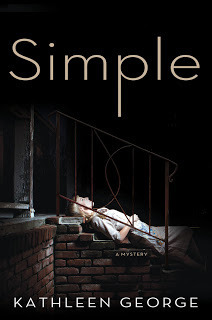 Kathleen George’s sixth police procedural featuring Commander Richard Christie and Detective Colleen Greer takes a different turn. A political thriller dealing with extreme measures taken to prevent scandal from derailing a high-level political campaign, Simplestill features the authentic characters, fine writing, and shrewd plotting that have characterized all of George’s books.
Kathleen George’s sixth police procedural featuring Commander Richard Christie and Detective Colleen Greer takes a different turn. A political thriller dealing with extreme measures taken to prevent scandal from derailing a high-level political campaign, Simplestill features the authentic characters, fine writing, and shrewd plotting that have characterized all of George’s books. Cassie Price, a beautiful, smart young woman working as a paralegal with the prestigious Connolly law firm before starting law school, gets involved in an affair with her boss, Michael Connolly, who is about to be named Republican gubernatorial candidate. Todd Simon, Michael’s handler, is ordered by the party to make sure Cassie will never become an embarrassment to Michael’s campaign. He gets her drunk and tries to seduce her himself. When that fails, Cassie’s fate is sealed.
Two detectives on the Homicide Squad who haven’t had a high-profile case in years are called to the murder of the young paralegal while Christie is returning early from vacation with his wife and children. In an effort to close the case successfully and early, the detectives pressure Cal Hathaway, the local handyman who found the body, into a confession. Deaf in one ear and mildly brain damaged from a vicious attack when a child, Cal is thrown into jail like a minnow into a shark tank. Upon seeing the taped confession and interviewing Cal in jail, Christie insists that the Homicide Squad make a more thorough investigation. This leads to bristly defensiveness on the part of the team that obtained the confession while the Homicide Squad is already tense over the romance developing between Greer and her partner Detective John Potocki.
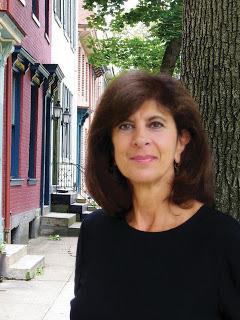 Michael Connolly, the political golden boy, is emotionally crushed by the strangling of his young mistress and the arrest of Cal, the son of Michael’s beloved housekeeper. He soon begins to suspect Simon of the murder but lacks the will to confront him. The case quickly becomes a contest between Simon’s clever plotting and Christie and his squad’s methodical unraveling with the fates of innocent, vulnerable Cal and wealthy, charismatic Michael at stake.
Michael Connolly, the political golden boy, is emotionally crushed by the strangling of his young mistress and the arrest of Cal, the son of Michael’s beloved housekeeper. He soon begins to suspect Simon of the murder but lacks the will to confront him. The case quickly becomes a contest between Simon’s clever plotting and Christie and his squad’s methodical unraveling with the fates of innocent, vulnerable Cal and wealthy, charismatic Michael at stake.This thriller offers the reader the fully realized characters, intricate plot, and accomplished prose that are George’s strong points, but it also uses powerful, telling detail to offer a subtle interrogation of power and class in American society and the collision of our political ideals with our political realities. The subtlety and assurance of this richly realized portrait of American politics sets Simpleabove the usual police procedural.
KATHLEEN GEORGE is the author of The Odds, which was nominated in 2010 for the Edgar for Best Novel. She is also the editor of the short story collection Pittsburgh Noir. A professor of theatre at the University of Pittsburgh, she and her husband live in Pittsburgh, Pennsylvania.
Next up is a new post in the Books of Interest by Writers of Color series. Also, I'm guest-blogging on Molly Greene's blog today, talking about putting a little malice in your life. Come join in the conversation.
Published on August 07, 2012 07:25
July 31, 2012
The Excitement of New Projects—With Story Excerpt
I turned in the final edits on the second Skeet Bannion novel, Every Broken Trust, to my editor at St. Martin’s at the beginning of July, but I haven’t been idle since then. (Even though we’re having a summer-long drought and heat wave here in Kansas City that’s the worst since the Dust Bowl with some temperature highs even breaking those records.)
I’ve done a number of guest blogs and interviews—and next week I’m going to put up a page on this site with the links to all of those plus all the reviews of Every Last Secret. I’ve continued my regular blogging at the Writers Who Kill group blog and added a monthly post at The Stiletto Gang groupblog. I’ve finished the freelance jobs that always show up this time of year, including preliminary judging for several national book contests. I’ve set up the opening situation of my next Skeet Bannion novel and am letting it roll around in the back of my head while I work on other projects, like the final version of a new book of poetry that I really like. I’ve been sending out individual poems in that book, Dark Sister, to be published in journals and elsewhere. Now, it’s time to start the manuscript of the book on its way toward publication.
I’m working on a new novel, a Sekrit Project (to borrow the brilliant nomenclature of Lilith Saintcrow). That’s going well, and it’s exciting, but I can’t give any details yet on that. I’m also working on some short stories. Those of you who’ve been following my blog for a while know that short fiction is a stretch for me. I admire those who write lots of great short stories. I have friends who are very, very good at short fiction. I find the short form of fiction a real challenge—mostly because every promising character and background I come up with starts to open out into a narrative too complex and long for a story.
I have a good short story publishing soon in Kansas City Noir (Akashic Books), as I’ve mentioned before on this blog. That story offered no spreading complications, nor did the few other literary short stories I’ve had published in the past. Now, I’m working on a short story that may eventually turn into part of something larger, but this part of it has built-in limits to make it work very well as a short fiction. It came about in a peculiar manner.
A good Twitter friend of mine, another lupus sufferer, is facing major, expensive reconstructive surgery on her jaw. Until she gets it, she must mash anything she eats to pudding consistency. Not a very happy way to live. Unfortunately, her insurance company doesn’t want to pay for this surgery. For all the details behind this, checkher blog entry about it here. Sabrina has a lot of friends who are writers. Not surprising because she’s a huge supporter of writers on her blog, My Friends Call Me Kate, and on Twitter and Facebook. Much as we might want to hand over thousands of bucks to her for her surgery, as writers we don’t have it. Some of us came up with the obvious idea of writing stories about feeding, jaws, or with a character named Kate for a fundraising anthology that we’ve titled Feeding Kate. You can contribute to the effort here.
I originally planned to do an urban fantasy story with a vampire of sorts (no sparkles!) named Kate because I thought Sabrina would get a big kick out of it. Of course, as I set up my story world and Ekaterina/Kate’s character, it opened out into something that will be novel or novella length. Won’t work for this. So I noodled around with a feeding, nurturing character I’d long wanted to use (but that I knew wouldn’t carry a book) and up popped another character who cared about her. The story began to take shape. So here’s part one of my story for Feeding Kate. For the rest, you’ll have to get a copy of the anthology by contributing to this great cause.
Rivka’s Place
Rivka’s place at 39th& Paseo is the only remnant of the postwar time when this stretch of Paseo Boulevard was prosperous—and white. As the area changed in color and class, the other shops and restaurants of its day moved or closed. Now this old Jewish lady’s bakery and deli huddles next to a tattoo shop, nail parlor, and liquor store, directly across the street from The Hot Jazz Lounge with its board-covered windows, live jazz, and occasional dead bodies late on weekend nights. Next block down squats Snake Eyes Music, best known for rap, porn, hookers, DEA shutdowns, and SWAT team visits. Rivka’s is the only survivor of better times.
I call myself CJ Nash. I work here behind the old-fashioned glass counters, making sandwiches, cooking, cleaning. Rivka Schinski’s my boss, and she’s about a hundred, a hunched old lady all twisted up by arthritis. She should have retired and sold or closed this place a long time ago. Her family sure wanted her to do that. Her grown kids and grandkids are rich, and they keep trying to get her to close this place and go someplace where they won’t have to worry about her getting knifed or shot. But Rivka’s tougher than gunmetal.
When they come around in their cashmere coats, driving their Lincolns and Lexuses, with their fears of crime and Blacks and bad publicity, she always says, “Hitler tried to kill me. The Nazis couldn’t kill me. Why should I be afraid of anyone else?” And she shakes her tiny wrinkled arm with its ugly tattooed numbers in their faces.
Truth of the matter is it hasn’t really been all that dangerous for her here. In its own way, the neighborhood looks out for its own. Rivka’s good to folks. She’s always got free treats for kids and food for the poor. She lets homeless street people, like Weedy, El, and The Rev, hang out inside the shop when it’s bitter cold or killer hot, along with the working girls. I’ve never known her to turn away anyone hungry who couldn’t pay. So, folks watch out for Rivka.
I know I do. I was homeless when I first met her, homeless, penniless, and on the run. Rivka’s been real good to me, gave me a job and a room in the back of the shop. Never asks awkward questions. I appreciate that.
My old man would hate to see me today, working for a Jew and hanging around with Blacks and Latinos. He thought he was the white man’s messiah, or that he’d raise my brothers and me for the job. We believed it, too, didn’t know any better. Back in those hills, I’d had no contact with anyone outside my family since I was six years old. My dad ran the world I grew up in, and his was the only truth I knew. It was a combination of boot camp and special forces training throughout my whole childhood.
But after the feds charged in, and we fought back, Dad looking like a pincushion for bullets, Mom and my brothers dead, too, I couldn’t keep them from taking me captive with two slugs in my gut. Once I healed and went to prison—I was barely eighteen, see, but I was eighteen—I got a whole new education.
Now, I just keep myself to myself, low profile. Don’t leave this building much, except to ride the bus once a month to the nearest used bookstore down in Westport. I stay in the front of Rivka’s, slicing meat, vegetables, and breads, or work the mixer and oven in the kitchen or just lie on my cot in the back and read at night instead of sleeping. I’d just as soon no one realized I was even around.
I live in a whole different world from the one my crazy old man preached with its brotherhood of the white man. Truth is, hardly anybody white ever helped me after the troubles, except for this crazy little twisted-up Jewish woman.
I knew we had a new kind of trouble the day Kev Mackey came around to flirt with pretty little Trini Hernandez, like he always does, and brought that new gangbanger with him. Trini’s tiny, half Mexican, half Dominican. She keeps her hair cut short and wears jeans and sloppy T-shirts all the time. Trying not to look sexy and available like her hooker sister. Trying to say she’s something different from what every man who sees her wants her to be. Sometimes I give her a book to try to read between her several jobs. She’s studying for her GED. Her secret hope is to go to school to become a nursing assistant and then maybe a nurse.
Kev’s a kid on the brink. He could come up with extraordinary guts and strength and go down the good road or do the easy thing and claim a gang and that short, brutal life. His new pal made that decision a long time ago. Big, tough, head shaved, pierced all over with silver knobs and rings, tats all over, especially on his fingers. Saw plenty of those in prison.
“They call me Dom, little girl. That’s short for Dominator ‘cause that’s what I do. No one disses me. No one refuses me. That’s the way it’s got to be, sis.” He went after Trini right away. “Now, you are fine, girl. Just as fine as my homes Kev told me. You and me going to be real close friends. Real close.”
A cloud of menace hung over him. He wasn’t from here, and it wouldn’t make any difference to him that Rivka was good to people or that Trini was working hard to get out of this neighborhood where her dad and brothers wound up in the joint and her big sis on the streets. It sure wasn’t going to make any difference to him that Trini was a good girl. He’d just break her. That’s the way those eaten-up, lost ones work. They don’t give a shit about anyone or anything.
Trini just ignored the punk, but Kev stood there with his mouth open like he couldn’t believe what he’d just heard. “No way, Dom. Trini’s mine.” Brave words, but he sounded as scared as he looked, all skinny brown-skinned teen with acne and nappy hair, trying to look bad with his jeans hanging around his knees.
Dom twisted his mouth. “But you want to share, right, homes?” His voice cut the air, harsh and dangerous. He glared at Kev with real threat. Dom wasn’t more than seventeen or eighteen, like me when I killed those feds. Like me, he’d been bred and trained to be dangerous. I knew his type. I’d been his type.
“There won’t be any sharing of me.” Trini looked across the glass counter at the two of them. She couldn’t help that her voice was small and soft, but she made it as firm and strong as she could. “I belong to no one but myself. Certainly not to you, Kevin.”
“Shit, Trini, you know you’re—“
“No bad language here, Kevin,” said Rivka, walking in from the kitchen, wiping her hands on a dishtowel at her waist. “You know the rules. You boys get something to eat and then leave Trini alone. She’s working.”
She came behind the shorter counter where Trini sat at the cash register. She reached over in the back of the high glass-front counters next to her and plucked up two doughnuts. “Here you go, boys. Nice and fresh and sweet.”
Dom glared at her and leaned over to get right in her face. “Listen, you old bitch! I—“
Rivka reached up and stuffed one of the doughnuts right in his open mouth as he was laying into her. His eyes flew open in shock and then panic as he started to choke.
“Chew,” Rivka said. “Chew and swallow. It’s good for you. Sweeten your temper. And no more bad language. You can’t frighten me.” She pointed to the tattoo on her wrist. “Scarier men than you will ever be have tried and failed.”
I moved out from the corner table behind the tall counter where I stayed most of the time, sharpening knives, making up bags of doughnut holes, whatever. I drifted over to stand next to Rivka. Mutt and Jeff. I’m almost tall enough to include two of her, one on top of the other. I still held the big butcher knife I’d been sharpening.
Dom was chewing as fast as he could and still choking some. Rivka waved him toward the door. “Go on home. Come back when you feel better.”
I started to move around the short counter behind Trini. I thought I’d whack him on the back since he was having such a hard time, but he turned and dashed for the door to the street before I could.
“Come on, Trini,” said Rivka, grabbing her purse. “I will drive you home.”
“But I’ve got two more hours to work.” Trini looked as if she might start crying. “I need the money.”
“Kevin can work your hours. I will still pay you.” Rivka turned toward Kev. “Why would you bring such a meshugganuh…?” Her hands tried to grab words from the air. “Such a crazy one. Why bring him here to torment Trini?”
Kev started to sputter in anger. I raised my eyebrows at him. I know the effect that can have on a kid, what with the scar that runs from one brow down to my jaw.
Trini whirled to face Kev. “You stupid! You better not bring that punk around me again, Kev, or I’ll never, never speak to you anymore.”
“Come, Trini, let me drive you home. I don’t want you to walk tonight.” Rivka pushed her toward the back door. “You keep your phone by you tonight. Call me if anyone comes bothering around your place.”
“Call 911,” I shouted after them. “They might not get there as fast as Rivka, but they’ll have more firepower.”
When I turned back to Kev, he was staring at the butcher knife in my hand. “What? This?” I shook it at him a little.
He pulled his head back as his eyes grew bigger.
“Kev, I was sharpening knives when your pal got so out of line. I just happened to have it in my hand.”
“You sharpen knives a lot of the time. I’ve noticed that.”
I shrugged. “I was taught to take good care of my tools. A dull knife is dangerous. You’re much more likely to cut yourself or someone else accidentally with a dull knife. And I never want to do something like that accidentally.” I walked back to my corner butcher block table and laid the knife on it.
I had the knives laid out in a line on the table, ordered by size. I put away my sharpening stone and its bench. I’d finished that part of the drill. Next, I’d take my butcher’s steel and hone the knives so it would take the barest touch of their edges to open the skin or surface of almost anything.
“You know, Kev, the time comes when you got to think for yourself and not just move in the direction everyone seems to be pushing you to move.” I looked at him directly, making direct eye contact though I usually avoided it. I wanted to make sure he was hearing and understanding. “This Dom guy may seem cool, but he’s not. He’s bad news for someone like you. Anything you do with him will bring him what he wants because you’ll be left to take the blame and punishment. Never let someone else control what you feel and do.”
I knew it was probably useless to talk this way, but I was talking to myself at his age more than anything, that kid who’d blown away two feds thinking he was protecting his family, thinking he was doing the righteous thing, only to learn after too many deaths that he’d been misled and would now have to pay forever for letting someone else control his emotions and actions. I was talking to the boy who’d set me on the course I’d been on ever since that day the feds showed at our home compound.
“Nah, Dom’s okay. He just doesn’t want anybody to feel like they can mess with him.” Kev’s face suddenly looked troubled. “I sure wish Miz Rivka hadn’t done that to him. You know, she dissed him bad. He’s going to have to come back on her hard.”
I nodded. I knew that the minute Rivka did it. I’m not sure she didn’t know it also. Rivka’s a lot smarter than people give her credit for. Dom was going to have to come back in and put the hurt on her big time. I didn’t want to see that. I hoped he’d get smart and go somewhere else.
I had to keep myself as low and out of sight as possible. Just because the search for me wasn’t active any longer didn’t mean it wasn’t ready to leap up any second the feds heard of a sighting or whenever my fingerprints showed up in some case or other. So I avoided trouble always. Now, Rivka had walked herself right into some really bad trouble. I didn’t see what I could do about it.
Coming up in the next week, a review of Kathleen George’s upcoming Simple, a political thriller, which is something new for her, with her trademark plotting, suspense, and beloved Pittsburg police officers, and another Books of Interest by Writers of Color post with Ruth Behar, Stanley Banks, and Xánath Caraza. Stay cool out there!
Published on July 31, 2012 16:16
July 24, 2012
Rosemary Harris + Free Book GiveAway--Literary Mystery Novelists
 To buy Slugfest, click here!
To buy Slugfest, click here! Rosemary Harris is offering a free copy of Slugfest to someone who comments on this post. Post your comment with a valid email to be entered in the contest.
Harris hit the mystery scene with a splash in 2008 when Minotaur Books published Pushing Up Daisies. This first book in the Dirty Business mystery series was an Agatha and Anthony Best First Book Award nominee, Mystery Guild Selection, IMBA Bestseller, and Killer Book, and on Library Journal's Best First Fiction List 2008.
Harris has been going strong ever since. Her books offer an irrepressible heroine, sharp social commentary, quirky characters, smart plotting, and witty prose. The trade paperback version of Slugfest, her fourth book, was recently released.
Bio
After several careers in book retailing (Waldenbooks), publishing (Crown Publishers), direct marketing (American Express Travel Related Services), and video/television/public television (WNET, ABC, Kultur, Winstar), Rosemary traded in her pumps for a yellow legal pad and a stack of pencils and started writing. A small item in the New York Times about a mummified body piqued her interest and subsequent research led to her first book, the Agatha and Anthony-nominated, Pushing Up Daisies, the first title in the Dirty Business mystery series from Minotaur Books. Daisies was followed by The Big Dirt Nap, Dead Head and Slugfest.
“I love my heroine, Paula Holliday. People always ask how much of me is in Paula – some, but of course she’s the younger, thinner, more adventurous version of me. And she’s single…she can have more romances than I can!”
When she’s not writing or gardening, Rosemary finds time for kayaking and hiking; at last count she’s visited over 70 national parks, monuments, and recreation areas, but her favorites are Yosemite, Glacier and Canyonlands.
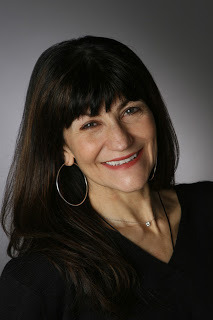
Something else that’s near and dear to her heart is Habitat for Humanity. Habitat’s goal is to improve substandard housing for people all over the world. If you are not familiar with them, please visit the Habitat for Humanity Web site. As of this writing, Rosemary has been on six Habitat builds, including China, Tanzania, El Salvador, two trips to Mexico, and two trips to post-Katrina New Orleans. She encourages everyone to support this amazing organization, both financially and through volunteering.
Inspired by her Habitat experiences, Rosemary and her husband Bruce have undertaken another very exciting project, building a library in central Tanzania. Visit the Chalula Library Page on her website to learn more about it.
Rosemary is a member of Sisters In Crime, Mystery Writers of America, CAPA, Ct Authors and publishers Association and CMGA (Connecticut Master Gardeners Association), and is President of MWA/NY and past president of Sisters in Crime, New England.
For those new to your series, can you describe the Dirty Business mysteries?
It's a traditional mystery series featuring an amateur sleuth named Paula Holliday, who happens to be a gardener.
How would you describe Slugfest to someone who has not read any of your previous novels?
Set in the chaotic, neurotic and in this case, homicidal world of trade shows, Slugfest is a funny, behind the scenes look at some of the less than genteel characters at a legendary flower show.
What sparked the idea for Slugfest?
I've been a volunteer at the Philadelphia Flower Show for over a decade and although I - happily - haven't witnessed any murders, I have seen some pretty strange behavior and I thought it was a perfect setting for a mystery.
Why did you start writing gardening mysteries? Did your own extensive gardens play apart in that decision?
I never thought I WAS writing garden mysteries! A body was found not far from my home in Connecticut and when I did some research I thought it would make a good story. It was natural for me to have my heroine be a gardener since 1) it's helpful if your amateur sleuth has a job that throws her into contact with lots of different types of people - from the day laborers to the "ladies who lunch" and 2) when you garden in the northeast you can really only do it six months out of the year - so she has plenty of free time to solve crimes.
What's your writing process? What is a typical writing day like for you? Do you keep to a set schedule? What are your writing habits?
I have no typical days . Ever. All I can say is that I write with a pencil on a yellow legal pad (and I've done it everywhere from a tent in Yosemite to a ferry out of Dar es Salaam.) Eventually I enter it all on the computer and rewrite for as long as they let me.
What projects, literary or otherwise, are occupying you at the moment?
My husband and I - with the help of many generous friends have built a library in Tanzania and we go there every year or so to visit. I've cleared another 1/4 acre of woods on my property so I'm slowly building the new garden which is anchored by shade-loving, flowering shrubs. And, oh yes, the WIP. Still IP, but hope to have finished this summer. It's not a Paula Holliday book and may not even be a mystery...
How long have you been writing?
Wow...I guess it's close to eight years now. First book came out in 2008.
How has your work or life experience affected your writing? Is there an incident that has changed your life and influenced your writing?
Of course one's work and experience influences everything. I tend to put a lot of humor in my writing - but I see the humor in a lot of things. I sometimes think if I'd never seen that tiny article about the body that was found I'd never have done any of this. That's what I get for reading the New York Times!
You recently brought out Slugfest as a paperback yourself? What did you learn in the process? Will you self-publish more books?
Ask me in a few months! Seriously...I thought that since the first three in the series had been released in pb the fourth one should be too. It was ridiculously easy to do - and maybe the emphasis should be on the word ridiculous. Despite strong reviews for Slugfest, without a retail presence it's very difficult to grow awareness for a book that isn't soft-core porn, written by an established bestseller a la Stephen King - or free. Like I said...ask me in a few months.
Rosemary will check in periodically to respond to comments and questions. Leave a comment for a chance at your own copy of Slugfest.
Published on July 24, 2012 07:41
July 17, 2012
The Dark Side of the City—“Kansas City Noir”
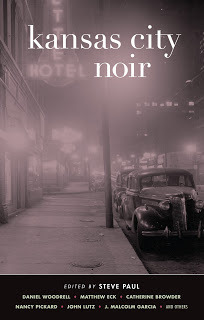 Click here to pre-order!
Click here to pre-order! Today, I got one of those great treats that writers love to receive. My author’s copies of Kansas City Noir arrived from Akashic Books. There is little in life to compare with ripping open a package to hold the actual physical book that’s been an image in so many people’s heads for so long. It’s a beautiful book as you can see from its perfect noir cover. It’s also remarkable for the stories it contains. I’m happy to be included in this collection of literary and mystery authors with excellent writers like Daniel Woodrell, Nancy Pickard, John Lutz, Matthew Eck, Catherine Browder, J. Malcolm Garcia, Kevin Prufer, Nadia Pflaum, Mitch Brian, Phong Nguyen, Grace Suh, Andrés Rodríguez, and Philip Stephens. Steve Paul, Hemingway scholar, award-winning poet, and long-time editor and writer for the Kansas City Star, was the editor who put together this fine collection of stories born and bred in Kansas City and strolling down the darker lanes of human experience.
For those of you not familiar with the Noir Series of anthologies set in various cities and locales (such as Indian Country) around the world that Akashic Books publishes, pay attention. You’re in for a treat. The brainchild of Johnny Temple and Tim McLoughlin, this series bring together accomplished writers of literary fiction and crime fiction—in some cases, of both—to spin stories that could be set only in that city or locale, stories that draw on local history, legend, and atmosphere and are set in a particular location or neighborhood. I love the tagline Akashic uses for these books—“reverse gentrification of the literary world.” That makes this post perfect for my Literary Mystery Novelists series.
As Steve Paul says in his introduction, “Kansas City is a crossroads. East meets West and North meets South here. Since its settlement in the first half of the nineteenth century, Kansas City has represented a place of opportunity, optimism, and ornery behavior.” After all, it was the powerful Mafia families of wide-open-until-the-late-fifties Kansas City that gave us the casinos of Las Vegas. Today, this first of the western cities routinely winds up on lists of high-murder locations, primarily due to the gang crime and violence in a small percentage of the metropolitan area.
Kansas City Noir contains stories set in city landmarks and in quiet neighborhoods to which no one pays attention. It contains cops, petty crooks, serial killers, gangbangers, and law-abiding citizens who step over the line. It contains beautiful images and language, as well as profanity and ugly crimes. Most of all, though, it contains fourteen strong, sharp stories with Kansas City fingerprints all over them.
The book launch will take place at 6:30 p.m. at the Kansas City Public Library Central Branch, 14 W. 10th Street, Kansas City, MO, and will feature editor Steve Paul and contributors Catherine Browder, Andrés Rodríguez, and Matthew Eck. (I expect to be in Cleveland at Bouchercon at that time.) Kansas City Noir can be pre-ordered from Akashic Books.
Published on July 17, 2012 13:53
July 13, 2012
Literary Mystery Novelists— BAD LITTLE FALLS by Paul Doiron
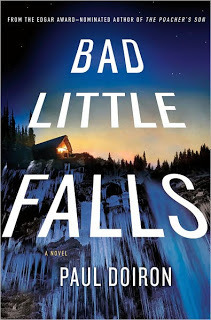 Click here to buy BAD LITTLE FALLS
Click here to buy BAD LITTLE FALLS Paul Doiron, Bad Little Falls (Minotaur Books) 320 pp. ISBN-13: 978-0312558482 Pub date: August 7, 2012
Readers of this blog and the Literary Mystery Novelists series will be familiar with Paul Doiron since I featured an interview with him on this blog after his first novel, The Poacher’s Son, was published to rave reviews and a swarm of award nominations. So for information about this author beyond the short bio given here, check that out.
Paul Doiron’s third mystery novel featuring Maine game warden Mike Bowditch offers the virtues readers of this series have come to expect from the author—evocative descriptions of Maine’s rough terrain, an appealing yet troubled young protagonist, nail-biting suspense, and some of the less-picturesque social problems of the state’s remoter areas.
Mike Bowditch is exiled to the most isolated and undesirable outpost on the Canadian border for the Maine Wardens Service due to his having embarrassed the powers-that-be in the two earlier books in the series, The Poacher’s Son and Trespasser. In his new home territory, his strict interpretation of the law immediately stirs up hostility from local wrongdoers who nail a coyote pelt to his trailer door as a warning and a sinister reminder that wardens were killed in this locale in an uprising against game wardens in the 1880s.
Mike’s supervisor seems as hostile as the community surrounding him. The only human connections he manages to make are with the local veterinarian and a beautiful woman with a gifted but troubled young son. When a deadly blizzard shuts down the whole area, Mike is called to a secluded cabin where a half-frozen man has appeared out of the night, deliriously claiming his friend is lost in the blinding snowstorm. The rescue mission finds a violent drug dealer murdered, and Mike is unable to just assume that the frozen friend killed him as the state police claim.
As the beautiful woman and her strange, gifted son grow important to Mike, he realizes that they, especially the boy, who keeps a secret notebook/journal, are also involved in some way. Under constant attack himself, Mike sees himself when young in the boy and, fearing for the child’s safety, tries to protect him from a hostile environment full of feuding smugglers and drug dealers.
Doiron uses his gift for language that evokes the environment surrounding his characters to make this northernmost part of Maine another character within the book. As usual, his plot is complicated and full of suspense and surprising twists, and his characters are multifaceted and well-drawn, making sometimes questionable choices due to unfortunate relationships. One of the real pleasures of Bad Little Falls is watching the development of Mike Bowditch. In the first books in the series, Mike was likable, but self-destructively impulsive with severe anger issues. In this book, he has the same problems, but he’s seriously trying to control them, not always successfully. Doiron offers a very realistic portrait of an engaging and troubled young man who is slowly and painfully maturing.
Doiron’s first two books have received much critical praise justifiably, but this one tops them in the quality of its writing, plotting, and characterization. Expect more praise and award nominations for this gifted author.
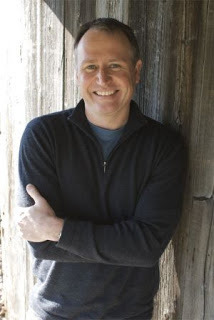 Bio
BioPaul Doiron is the author of the Mike Bowditch series of crime novels, including The Poacher's Son, which won the Barry Award for Best First Novel and the Strand Critics Award for Best First Novel and has been nominated for an Edgar Award, an Anthony Award, a Macavity Award, and a Thriller Award for Best First Novel, and the Maine Literary Award for "Best Fiction of 2010." His second book in the Mike Bowditch series, Trespasser, won the Maine Literary Award for crime fiction, was an American Booksellers Association Indie Bestseller and has been called a "masterpiece of high-octane narrative" by Booklist. The Poacher's Son received starred reviews from Publishers Weekly, Booklist, Kirkus Reviews, and Library Journal, and Trespasser received starred reviews from Booklist and Library Journal. Bad Little Falls received a starred and boxed review from Publishers Weekly.
Doiron is the editor in chief of Down East: The Magazine of Maine, Down East Books, and DownEast.com. A native of Maine, he attended Yale University, where he graduated with a degree in English, and he holds an MFA in creative writing from Emerson College. Paul is a Registered Maine Guide specializing in fly fishing and outdoor recreation and lives on a trout stream in coastal Maine.
Published on July 13, 2012 09:12



